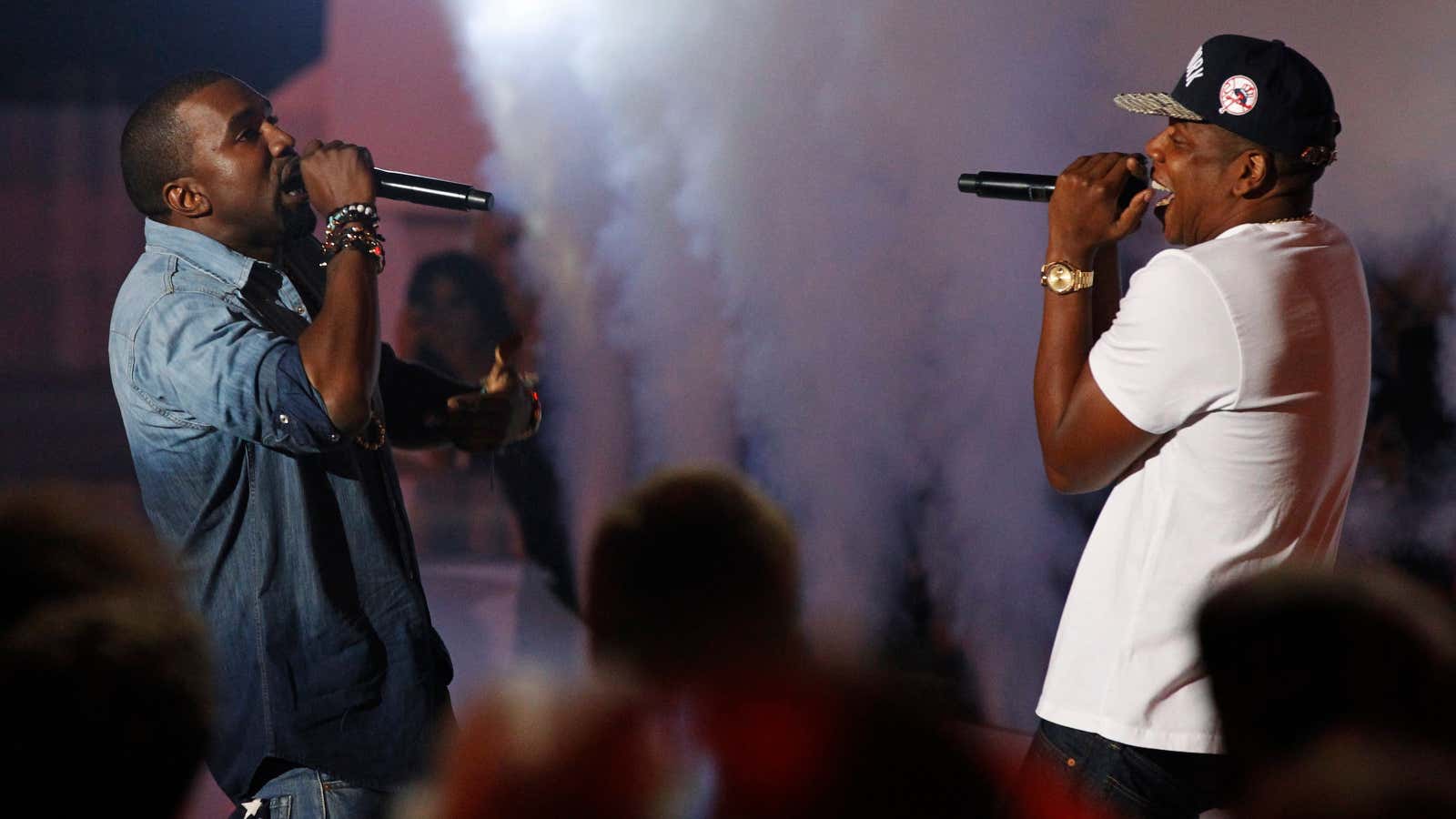“Exclusive”—synonyms: limited, restricted, not obtainable elsewhere—isn’t a hard word to define.
Except when talking about music streaming.
In February, Kanye West decided to drop an album exclusively on Jay Z’s subscription streaming service Tidal, a company which West partially owns. ”You can only get it on Tidal,” the rapper declared. “Please, to all my friends, fans, and music lovers: sign up to Tidal now.” People did. Then in April, West did an abrupt about-face and handed The Life of Pablo over to Spotify, Apple Music, and other digital platforms, effectively cutting the album’s time as a Tidal “exclusive” to a few weeks.
Yesterday (April 18), one indignant fan filed a lawsuit against West and the streaming company, claiming they duped customers into signing up for subscriptions under false pretenses. ”If they can mark an album as an exclusive, they can generate a lot of interest,” says Jay Edelson, founder of Edelson PC, the consumer tech privacy law firm representing the plaintiff, Justin Baker-Rhett. “In this case, we had an artist who wanted it both ways—he wanted to force customers to use one platform where he was a part owner, but also didn’t want to lose out on sales [from other platforms].”
Baker-Rhett wants to turn the suit into a class action with other fans who were allegedly misled into buying Tidal subscriptions. His claims implicitly raise a trickier question: In the new era of widely available digital music, what does “exclusive” mean?
Taylor Swift, for instance, has refused putting her music on certain services. Others artists, such as Drake, have given an exclusive streaming window to one service, then released their music more broadly. Both these tactics are more honest than West’s moves.
Neither Swift nor Drake, however, have dealt with the reality that most music is widely available no matter how hard artists try to control distribution. The world is swarming with pirated audio downloads—West’s new album, as an example, was illegally torrented a record-breaking 500,000 times the day after its release. Additionally, music streams are incredibly easy to share over the internet. Even legitimate sites like Spotify and YouTube inadvertently host illegal content because they can’t police every single file that users upload.
Given the availability of music via a plethora of digital avenues, it’s difficult for streaming services to claim anything is exclusive in the traditional sense of the word. It may be harder, yet, for angry fans.
Ian Kar contributed reporting.
